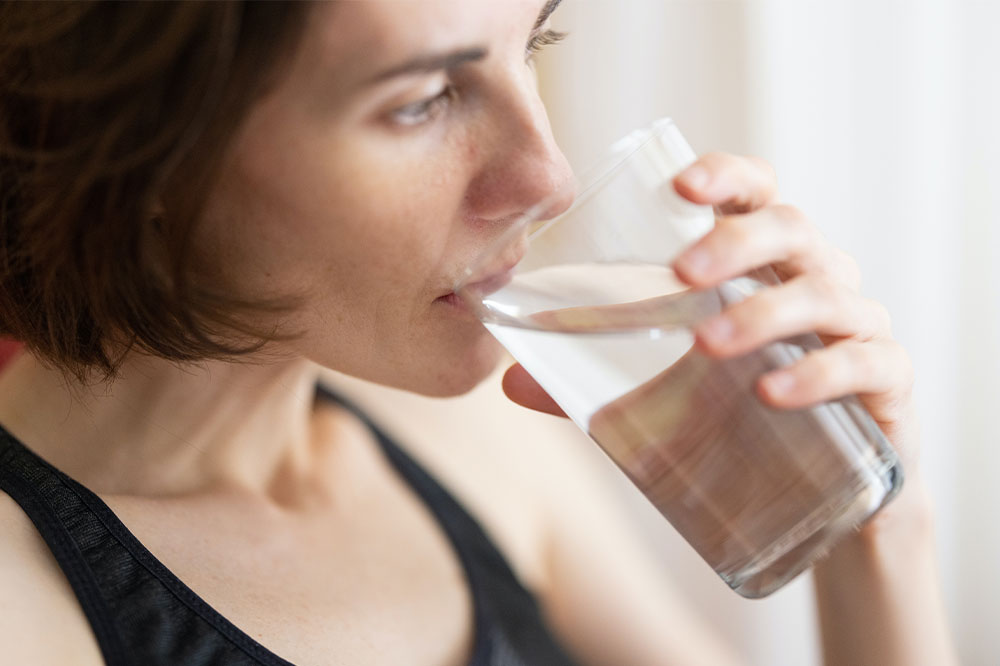
13 warning signs of dehydration
Water constitutes approximately 71% of the earth’s surface and 60% of the human body, making it an indispensable element of life. The body requires adequate water to perform several vital functions, including digestion, protection of tissues and the spinal cord, urination, bowel movements, replenishment of cells, and perspiration. Unfortunately, multiple studies have shown that 75% of adults in the country suffer from chronic dehydration. This article lists the common side effects of not having enough water.
Abnormal urination patterns
Lack of water in the body significantly affects urination, leading to lower urine output than usual. Moreover, the frequency at which one passes urine also decreases. Finally, the color of one’s urine becomes darker and more concentrated, which may leave a burning sensation around the urethra. The odor of one’s urine may also be stronger when dehydrated.
Dryness of the tongue, mouth, and lips
The salivary glands in the body require optimal fluid content to produce saliva, which is essential for lubricating the mouth. Dehydration reduces the body’s fluid levels, leading to mouth, lips, and tongue dryness. Chapped lips are common among individuals with dehydration. Lack of saliva can impede digestion and cause dental problems like tooth decay and gum disease.
Lightheadedness
Lack of water in the body can lead to reduced blood volume, which can lower one’s blood pressure levels and lack of adequate blood supply to the brain. Consequently, dehydrated individuals may suffer from lightheadedness or dizziness.
Excessive thirst
Thirst is among the first and most direct signs of dehydration. It is the body’s indication that it requires more water to perform its regular functions. Thus, this symptom should not be ignored: one should immediately have some water during spells of thirst.
Sunken eyes
Human tissue loses its density due to a lack of water. The skin surrounding one’s eyes is already thin; hence, the area around one’s eyes may immediately appear discolored, sunken, or hollow in cases of dehydration.
Skin dryness
Water is essential to facilitate skin elasticity and unclog pores. Hence, a lack of water can cause acute skin dryness and other skin conditions, such as wrinkles, blemishes, and acne. While moisturizers can help revive the skin’s texture to a certain extent, adequate water intake is essential for long-term skin health.
Constipation
One of the common early symptoms of dehydration is constipation. The large intestine absorbs water naturally as stools pass through it. However, in cases of a lack of water in the body, the large intestine absorbs all the water from stools, causing stool hardness and difficulties with excretion.
Flushed skin
Dehydration causes the body to become overheated, which can cause flushed or red skin, particularly on the face.
Bad breath
Dehydration reduces saliva concentration in the mouth, which can lead to excessive accumulation of oral bacteria and trigger bad breath.
Fever and chills
Individuals with acute dehydration may experience fever and chills as the body heats up excessively. Further, fever can aggravate dehydration, causing a vicious cycle.
Cravings for specific foods
Dehydration can prevent body organs like the liver from releasing glycogen or glucose in its stored form and other energy reserves, leading to cravings for specific foods, particularly sugary items. This symptom is caused when the body misconstrues thirst for hunger. Thus, individuals experiencing dehydration-induced hunger should increase their water intake rather than give in to cravings.
Headaches
The human brain can contract for a brief period due to dehydration. This contraction can cause the brain to move away from the skull, triggering dehydration headaches. Mild dehydration may also trigger headaches. Likewise, rehydrating the body causes the brain to return to its usual size, facilitating headache relief.
Mood fluctuations
Even mild dehydration can trigger significant changes in one’s mood and cognition, causing anxiety, irritability, difficulty concentrating, and anger. These symptoms are primarily due to dehydration’s neurological effects on the body.
Experts recommend that women and men drink approximately 2 liters and 2.6 liters, respectively, of water daily. Pregnant or lactating women may require more fluid intake than others. Some basic tips can help one ensure adequate fluid intake and prevent dehydration. For example, one can set hourly “drink water” reminders on one’s phone and keep a bottle of water handy, taking a sip every time the reminder sounds. It also helps to incorporate hydrating fluids like fresh fruit juices and smoothies into one’s meals and limit caffeine intake.